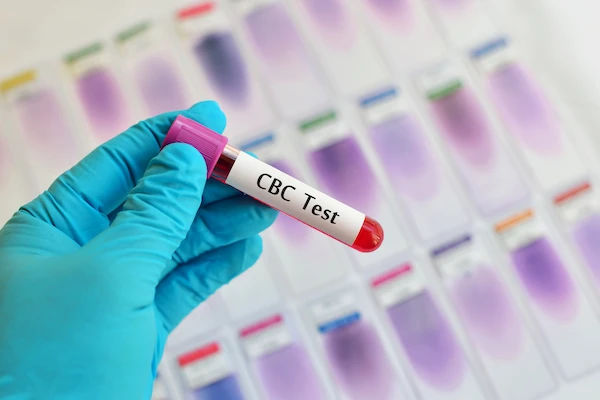USG Scanning: Overview and Procedure
Discover how USG (ultrasound) scans work, their uses, safety, and what to expect during the procedure. Book a USG scan online with Apollo 24|7 today.


Introduction
When it comes to medical imaging, Ultrasound Scanning (USG) is one of the safest, most common, and painless procedures used to examine the inside of the body. Whether you're pregnant, experiencing abdominal pain, or need a diagnostic check-up, a USG scan provides clear images without radiation.
If you or a loved one has been advised to undergo a USG scan, you might have questions about how it works, what to expect, and why it’s necessary. This article will guide you through everything you need to know in simple terms.
What is a USG Scan?
A USG (Ultrasonography) scan is a non-invasive imaging technique that uses high-frequency sound waves to create real-time images of organs, tissues, and blood flow inside the body. Unlike X-rays or CT scans, it does not use radiation, making it a safer option, especially for pregnant women and children.
Common Uses of USG Scanning
- Pregnancy monitoring (to check fetal growth and development)
- Abdominal scans (liver, kidneys, gallbladder, pancreas)
- Pelvic scans (uterus, ovaries, prostate)
- Thyroid and breast examinations
- Heart scans (Echocardiography)
- Musculoskeletal scans (joints, tendons)
- Blood flow assessment (Doppler USG)
How Does a USG Scan Work?
The procedure is simple and usually takes 15-30 minutes, depending on the area being examined. Here’s what happens:
1. Preparation:
- Some scans (like abdominal or pelvic) may require you to fast for a few hours or drink water to fill your bladder.
- Wear comfortable, loose-fitting clothing.
2. During the Scan:
- You will lie on an examination table.
- A gel is applied to the skin over the area being scanned (this helps transmit sound waves).
- A handheld device called a transducer is moved gently over the skin, sending sound waves into the body.
- These waves bounce back and create images on a monitor.
3. After the Scan:
- The gel is wiped off, and you can resume normal activities immediately.
- The radiologist analyses the images and sends a report to your doctor.
Consult a Top Physician For More Health Benefits
Is a USG Scan Safe?
Yes! USG is completely safe because it uses sound waves, not radiation. It is routinely used for:
- Pregnant women (to monitor the baby’s health)
- Children (for various diagnostic needs)
- People of all ages (for organ examinations)
There are no known side effects, and it is painless (though slight pressure may be felt in some cases).
When Should You Get a USG Scan?
You may need a USG scan if you experience:
- Abdominal pain or swelling
- Unexplained weight loss
- Lumps in the breast or thyroid
- Pelvic pain or irregular periods
- Kidney or bladder issues
- Pregnancy-related concerns
Your doctor will recommend the type of USG based on your symptoms.
Tips for a Smooth USG Experience
Here are some tips for a smooth USG experience:
1. Follow Pre-Scan Instructions:
- Fasting may be needed for abdominal scans.
- A full bladder is required for pelvic or pregnancy scans.
2. Wear Comfortable Clothing:
- Easy-to-remove clothes help in accessing the scan area.
3. Stay Relaxed:
- The procedure is quick and painless—no need to worry!
4. Ask Questions:
- If unsure about anything, ask the technician or doctor.
How to Book a USG Scan?
If your doctor has recommended a USG scan, you can easily book an appointment through Apollo 24|7. Here’s how:
- Online: Visit the Apollo 24|7 website or use the app.
- Home Service: Some USG scans can be done at home for convenience.
- Clinic/Hospital Visit: Choose a nearby Apollo diagnostic centre.
Get Your Health Assessed Here
With expert radiologists and advanced machines, you can be assured of accurate and quick results.
Conclusion
A USG scan is a safe, painless, and effective way to diagnose and monitor various health conditions. Whether it’s for pregnancy, abdominal issues, or other concerns, this procedure provides clear images without any harmful effects.
If you have any doubts or need to schedule a scan, consult your doctor or book an appointment today. Early detection through USG can help in better treatment and recovery.
Consult a Top Physician For More Health Benefits
Consult a Top Physician For More Health Benefits

Dr. Chaithra H
General Physician/ Internal Medicine Specialist
6 Years • MBBS, MD General Medicine, DNB General Medicine
Bangalore
Apollo 24|7 Clinic - Karnataka, Bangalore

Dr. Mohammed Kamran
General Practitioner
5 Years • MBBS, FIDM
Nashik
Apollo 24|7 Clinic - Maharashtra, Nashik

Dr. Jawwad Mohammed Kaleem
General Practitioner
4 Years • MBBS
Hyderabad
Apollo 24|7 Clinic, Hyderabad

Dr. Siri Nallapu
General Practitioner
5 Years • MBBS
Hyderabad
Apollo 24|7 Clinic, Hyderabad

Dr Divya Lekha Gunta
General Practitioner
10 Years • MBBS, MD (Pathology)
Visakhapatnam
Apollo 24|7 Clinic - Andhra Pradesh, Visakhapatnam
Consult a Top Physician For More Health Benefits

Dr. Chaithra H
General Physician/ Internal Medicine Specialist
6 Years • MBBS, MD General Medicine, DNB General Medicine
Bangalore
Apollo 24|7 Clinic - Karnataka, Bangalore

Dr. Mohammed Kamran
General Practitioner
5 Years • MBBS, FIDM
Nashik
Apollo 24|7 Clinic - Maharashtra, Nashik

Dr. Jawwad Mohammed Kaleem
General Practitioner
4 Years • MBBS
Hyderabad
Apollo 24|7 Clinic, Hyderabad

Dr. Siri Nallapu
General Practitioner
5 Years • MBBS
Hyderabad
Apollo 24|7 Clinic, Hyderabad

Dr Divya Lekha Gunta
General Practitioner
10 Years • MBBS, MD (Pathology)
Visakhapatnam
Apollo 24|7 Clinic - Andhra Pradesh, Visakhapatnam




